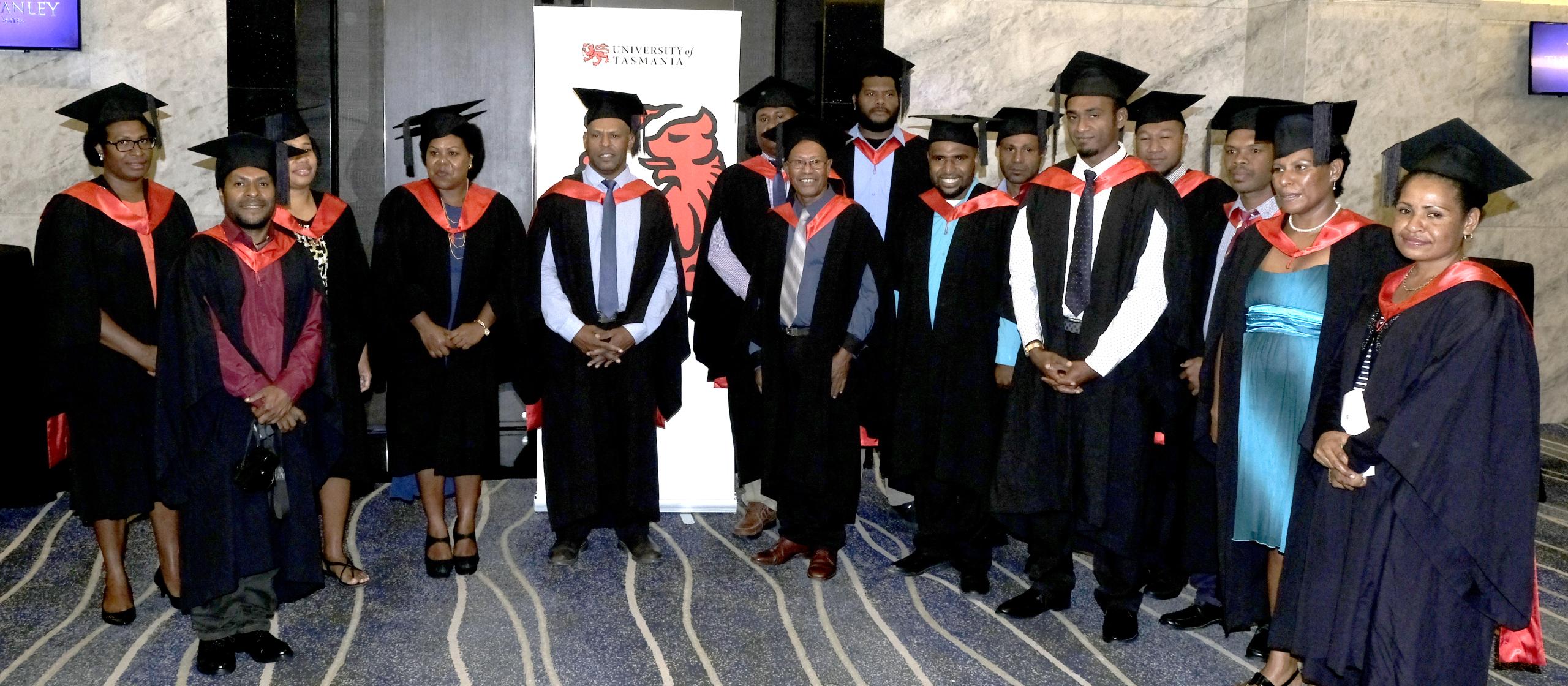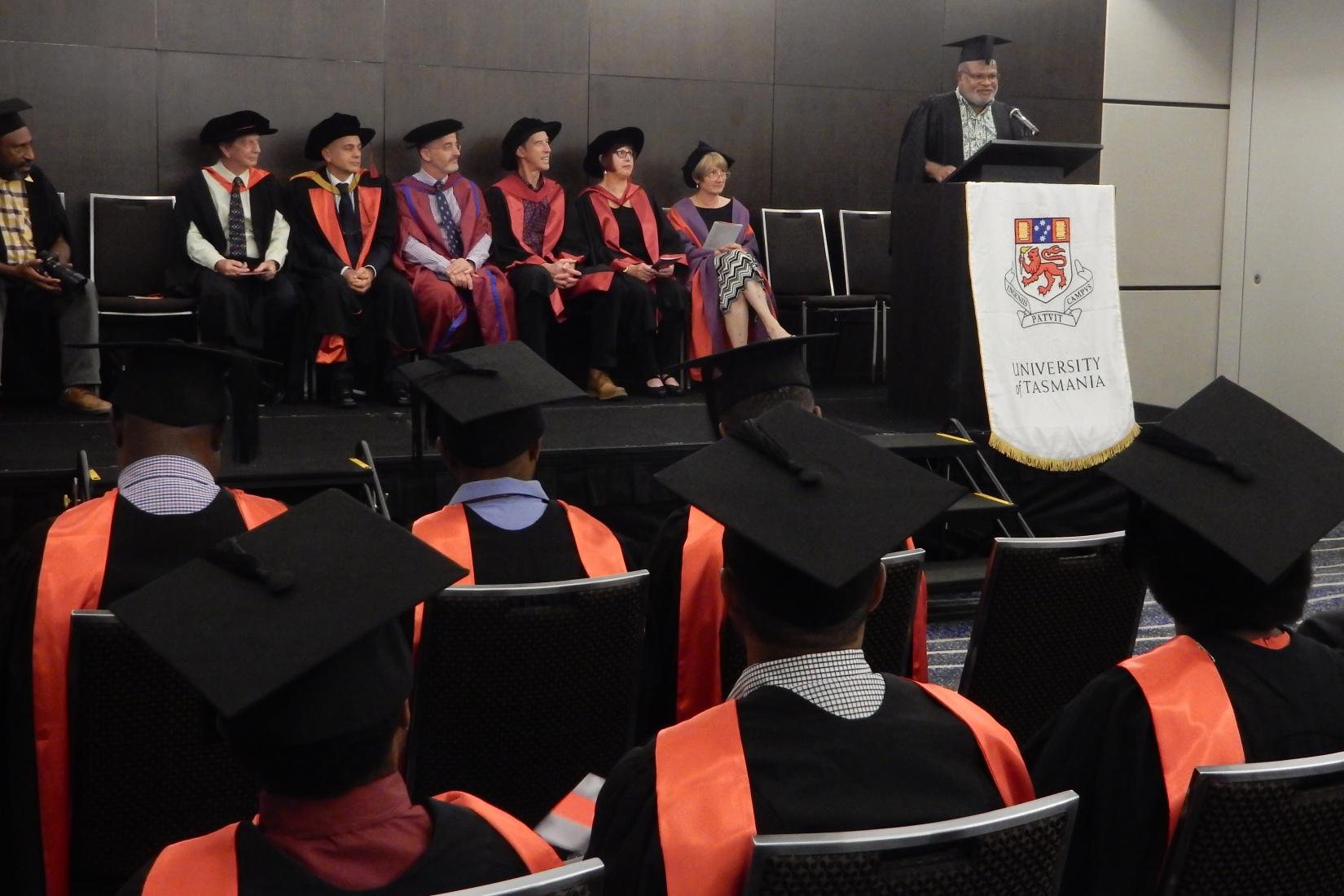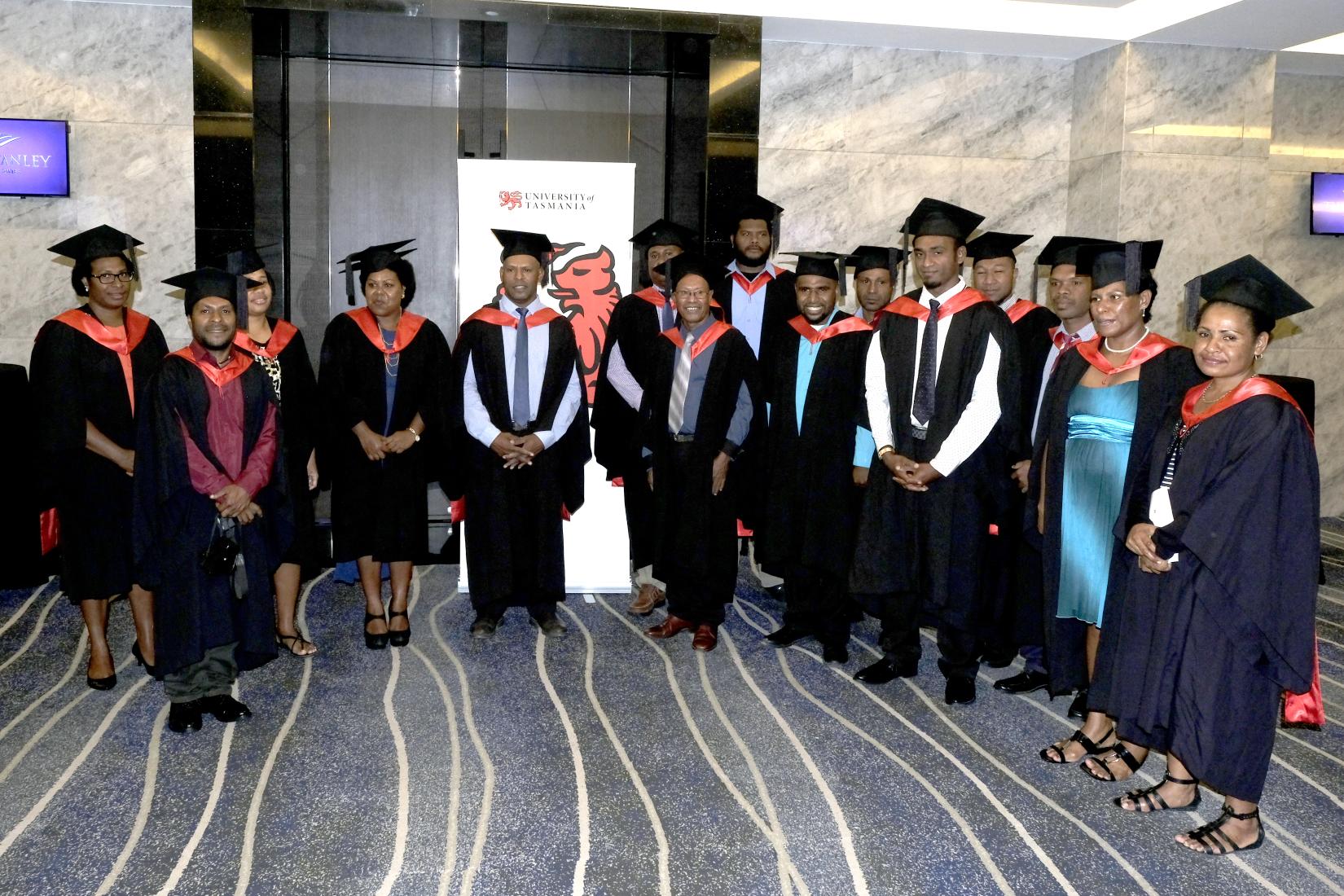NEW SKILLS
The graduates value their new skills, and are putting them into practice. Several mentioned in particular skills learned from the module Learning Through Practice, where students reflect on their own experiences to build awareness and confidence in their abilities.
“The course has greatly enhanced my skills in managing others. It really helped me understand myself as a supervisor… It has built me up in a different way to my earlier studies. It has adjusted my mind and my mindset, how I think and how I approach other people.” – Nicholas Daniels, researcher with the NFA.
“I’ve learned the importance of setting a goal, then looking for the methods to reach that goal. … Collecting the data, what to collect, what not to collect, and how to present it.” – Mark Winai, forester working with the NGO Foundation for People and Community Development.
“I’ve learned a lot and I’m using it in my work. I’m doing trials on feed, which is one of the main problems for aquaculture in PNG. I’m working in a province where there is a lot of oil palm, so we have an abundance of kernel, and we’re trialling three different feeds based on this.” – Georgina Bernard, Provincial Fisheries Officer in West New Britain.
RELEVANCE
The course was tailored so that students could relate the training directly to their day-to-day work.
“They were able to really relate what was being taught in the classroom with their jobs, and if they had any issue [with their work], they could bring it into the classroom” – Jacob Wani, Executive Manager for Aquaculture and Inland Fisheries, NFA.
“We really used our experiences from work to apply it to the course” – Lisanda Tiru, aquaculture researcher, NFA.
MULTIPLIER EFFECT
Some of the students are already passing on their new skills to others.
“This course plays a very important role in two areas in our lives. One is our own career paths, and another is to train others… I will go back and train the provincial fisheries officers. My colleagues at the college are also asking me to help them develop their own courses in research skills.” – Philomena Sinkau, trainer in aquaculture at the National Fisheries College.
“Now I can train students in these research skills – proper design, data analysis, writing, the importance of honesty with data... For myself, it has helped me to do analysis properly, and write up papers.” – William Nano, lecturer in animal science and aquaculture at the University of Lae.
A BRIDGE
The course has allowed some of the students to move on to further studies (masters and PhD) that they would not have been able to do otherwise.
“It builds a bridge for us to go on to a PhD… it’s a bridge for me, it’s a career path…” – Philomena Sinkau.
ASPIRATIONS
“[Aquaculture is] a new industry and we don’t have training plans for the country… [As a future PhD project] I would like to develop a training plan, a training policy, to assist our schools and the tertiary institutions as well… skill based training for people at the grassroot level, vocational schools for those who don’t have proper education, like farmers, and dropouts like youths [who are] roaming the streets without jobs… we are trying to provide a pathway for them.” – Philomena Sinkau.
“[Today in PNG] we need good managers, good directors in the forestry sector… forestry policy is not tough, there are not enough conservation areas, no laws protecting reserve areas, people are cutting down trees… I want to be someone in the forestry sector who can implement policies, help make decisions that protect the environment, the forests.” – Sylvester Kulang, PNG University of Natural Resources and Environment.
“I think there’s potential to expand this kind of training for higher qualifications such as postgrad diploma, MSc or PhD. There are economic benefits for both Australia and PNG by having students based in PNG with Australian tertiary institutions providing the trainings. Much more like remote learning. This way I think we can get more people trained on the cost of one person trained in Australia.” – Jacob Wani.
You can watch highlights of the graduation in the video below. Video courtesy of Lauren Barlow.






